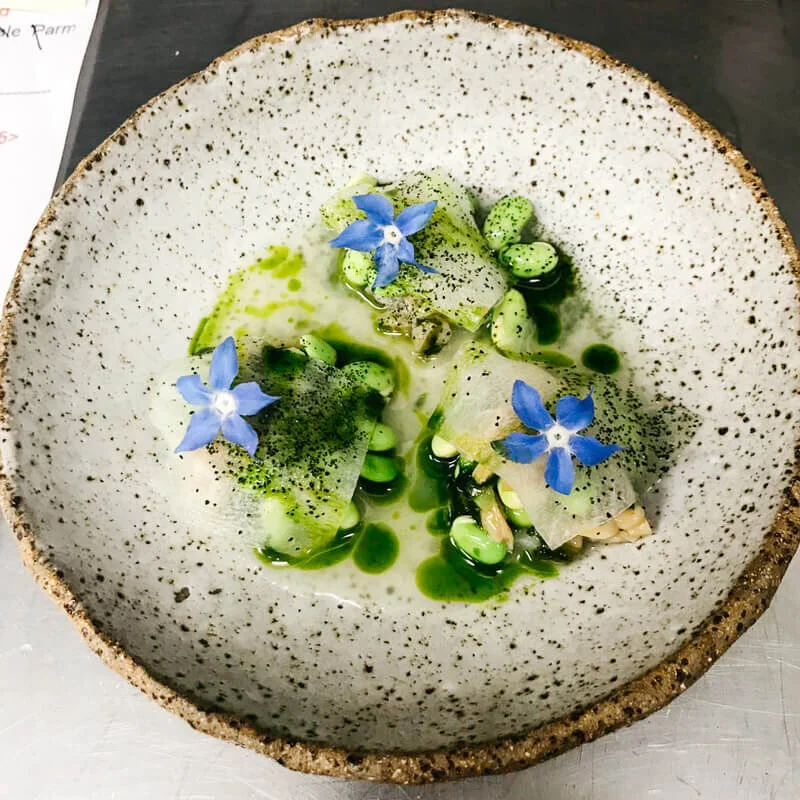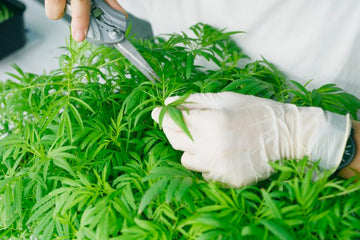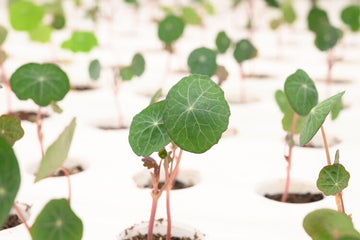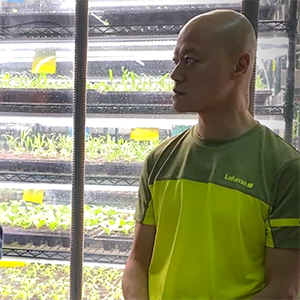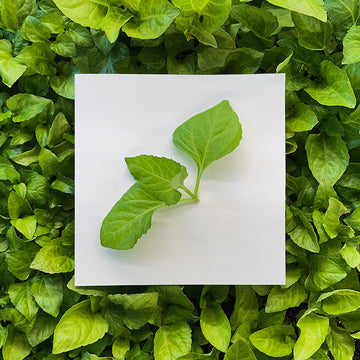
Beet’s Commitment To Local Produce Helps It Stand Out From The Crowd
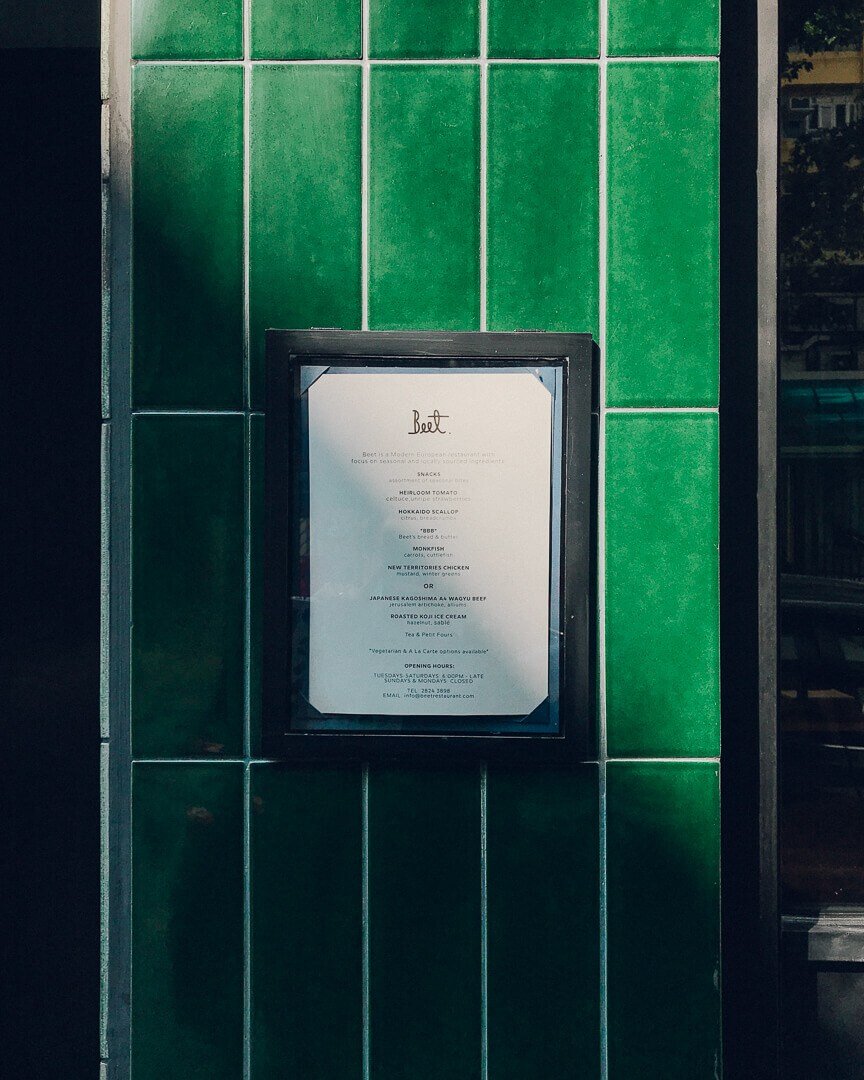
Passionate about locally grown food.
How has Beet managed to generate an enthusiastic following and garner glowing reviews, while other casual fine dining establishments struggle to make a mark on Hong Kong's highly competitive food scene? According to head chef Barry Quek, Beet's passionate commitment to showcasing seasonal and locally sourced ingredients is a huge contributing factor to their success.
Barry didn't have much exposure to agriculture or local food production while growing up in Singapore. It wasn't until he began cooking alongside Kobe Desramaults at Michelin starred Belgian restaurant In De Wulf that he had an "eye-opening" experience with local produce. He witnessed firsthand the value of having a close relationship with the farmers that supply your food. Nothing was off the grocery shelf; everything was customizable, down to the level of ripeness and color. Farmers took the time to explain their growing process and the environmental conditions that would affect their season's harvest.
But such an absolute commitment to local produce also presented some challenges. Since no lemons were grown in the vicinity of the restaurant, the chefs developed homemade flavored vinegar to achieve desired levels of acidity. Such processes were labor-intensive but instrumental in establishing the conceptual framework that gave rise to the restaurant's success.
"I never knew Hong Kong had such amazing produce. I always thought of Hong Kong as a shopping city, but I fell in love with the produce."
Motivated by this experience, Barry knew he wanted to continue using and promoting local ingredients when he moved to Hong Kong in 2017. At first, he wasn't sure if he'd be able to locate inspiring produce like he had access to in Europe. But after visiting several local farms in the New Territories, including pig, chicken, and vegetable farms, he was pleasantly surprised by what he found.
"I never knew Hong Kong had such amazing produce. I always thought of Hong Kong as a shopping city, but I fell in love with the produce." It was just the encouragement he needed to begin building his menu around seasonal, locally sourced ingredients.
There were challenges at first. The local agriculture scene was different than what he was used to in Europe; it was smaller, more fragmented, and had the added difficulty of a language barrier. While he worked to find a way to navigate these challenges, Beet still relied heavily on imported produce, a habit that most Western restaurants continue to lean on. But since the farming world in Hong Kong is small (only 2% of vegetables consumed locally are grown here), its close-knit community turned out to be a blessing. His pig farmer introduced him to a chicken farmer, who introduced him to a vegetable grower - and his network kept expanding from there. The online organic grocery supplier, Jou San, also proved useful in his search for the best local products.
It was shortly after Beet opened that Barry connected with Common Farms. We were delighted to supply him with our own locally grown specialty microgreens, herbs, and edible flowers, and have continued to enjoy seeing our produce elevated by the skillful preparation and plating on display at Beet.
Barry's commitment to finding the best local produce continues to be both a source of great pleasure and mild frustration. According to him, the best part about working with local producers instead of international importers is the unbeatable freshness of the produce and the close relationship he has with his suppliers. He can place an order at night and have it harvested and delivered by the following day, with plenty of time to spare for dinner service.
Freshness, Barry says, is the characteristic he values the most when it comes to sourcing his ingredients. While a locally grown tomato might not have the same complexity or depth as a premium Italian variety, he can use his skills as a chef to elevate inferior flavors and even use them to his advantage. One of his current starter dishes features unripened strawberries from a farm in the Ping Che collective. He worked directly with the farmer to dial in the exact level of ripeness to balance out the other elements of the dish. Having a direct relationship with farmers can also spark additional opportunities for experimentation. One farmer enthusiastically started growing a wider selection of beetroot - golden beetroot, candy beetroot, and baby beetroot - after he found out Barry was looking for more than just the common red variety.
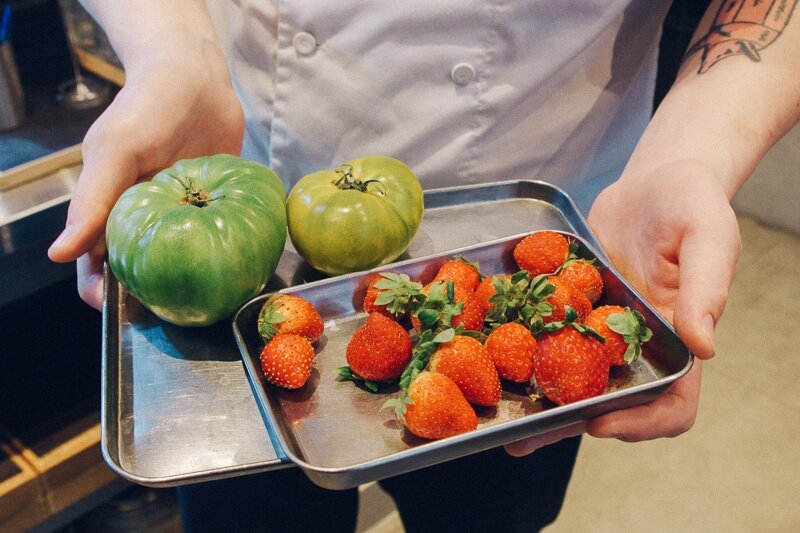
Chef Barry with some local heirloom tomatoes and strawberries.
Yet, all this freshness and flexibility can't contend with the realities of Hong Kong's fragile farming ecosystem when it comes to susceptibility to the weather. The local agriculture industry is still too small to provide insurance when disaster strikes. 2018's Typhoon Mangkhut played a particularly destructive role, resulting in a stretch of two to three months when Barry couldn't find any local produce to serve his customers.
The super typhoon brought the fragility of Hong Kong's local food scene into focus. It highlighted the need for further investment into alternative growing methods like indoor farming systems that are less prone to interruptions by natural disasters. It also turned out to be a learning experience for people dining at Beet, who appreciated seeing the direct connection between farm and farmer. Barry says his customers instinctively understand the value of consuming food that is more seasonal and supports local industries, despite not having direct exposure to agriculture.
"There is a trend towards more local, sustainable produce. Among chefs there is encouragement between each other to move in this direction."
Most people prioritize affordability and convenience over issues of sustainability. Still, Barry believes that if more people are aware of the amount of dedication and hard work that goes into growing local produce, as well as its environmental importance, they may be more willing to change their buying habits.
During the height of health scares like the swine flu or the recent coronavirus, people avoid produce coming in from China, and business for local farmers booms. These trends reveal the need for more significant support for the agriculture sector in Hong Kong from both the government and the public.
Barry has hope that the approach to local food is changing in Hong Kong. "There is a movement towards more local, sustainable produce. Among chefs, there is encouragement between each other to head in this direction."
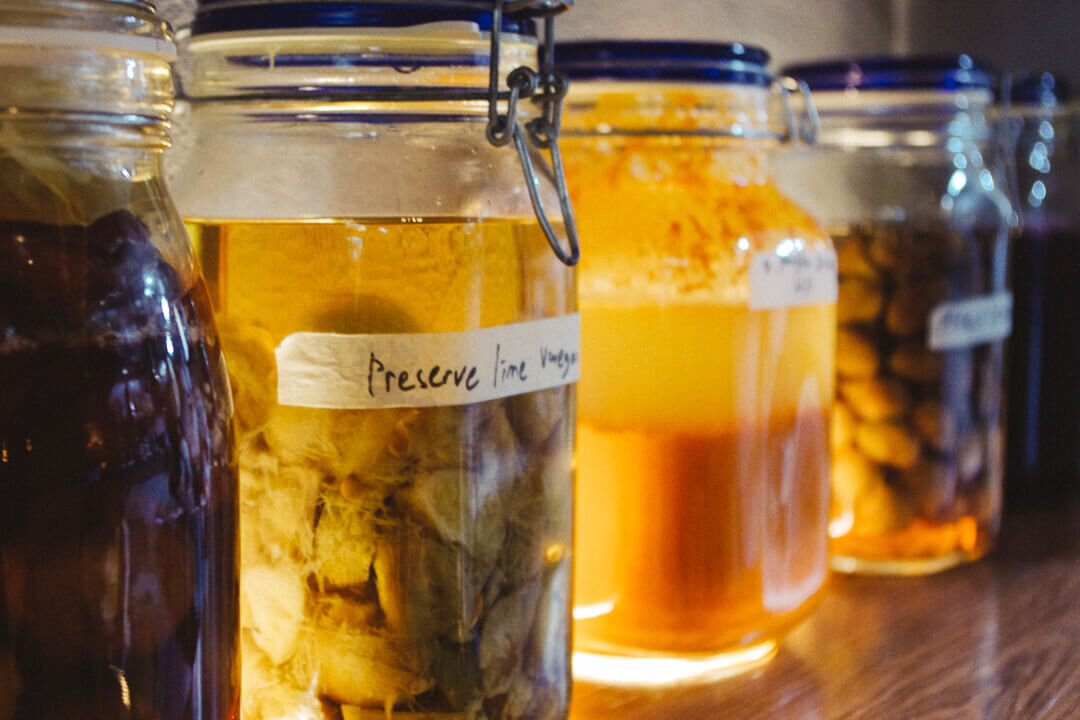
Beet’s homemade vinegar and fermented fruits and vegetables.
What is Barry's favorite under-appreciated local vegetable?
- Kohlrabi. It isn't commonly found on local or Western menus, but several varieties grown on Hong Kong farms have impressed him with their quality.
What are Barry's top three favorite Common Farms products?
- Marigold leaves and flowers. The leaves with their fresh, herbal bitterness, and the bright colors of the flowers have been featured on several of Beet's dishes over the years.
- Green Sorrel. Gives a tangy kick that is currently used on Beet's chicken parfait appetizer.
- Borage flowers. The bright blue, star-shaped flowers have frequently added a pop of color and visual interest to the plates at Beet.
- Check out Barry’s favorites from Common Farms and some of the dishes we’ve enjoyed at Beet in the past that feature our produce!









